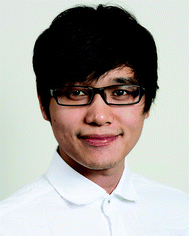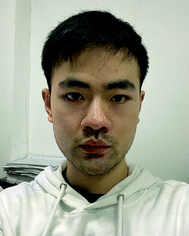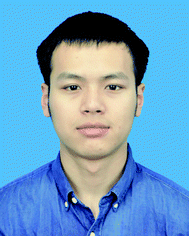On June 7, the research group of Prof. Tang Conghui, a research professor of the School of Chemistry and Chemical Engineering, Huazhong University of Science and Technology published an online paper entitled “Molecular Oxygen-Mediated Oxygenation Reactions Involving Radicals” on Chemical Society Reviews, a top journal with the influence factor of 42.846. This paper systematically summarizes the oxygenation reactions which employ molecular oxygen or ambient air as both an oxidant and an oxygen source. It introduces the recent advances in this field by categorizing catalytic systems and reaction types, and provides an overview and analysis of the future perspectives.

Molecular oxygen as a green, non-toxic and inexpensive oxidant has displayed lots of advantages compared with other oxidants towards more selective, sustainable, and environmentally benign organic transformations. The oxygenation reactions which employ molecular oxygen or ambient air as both an oxidant and an oxygen source provide an efficient route to the synthesis of oxygen-containing compounds, and have been demonstrated in practical applications such as pharmaceutical synthesis and late-stage functionalization of complex molecules. The research group focuses on oxygenation reactions involving molecular oxygen, including oxygenation through C-H bond activation or C-C bond cleavage, alkene/alkyne functionalization, oxygen heterocycle synthesis and etc. Detailed reaction scopes and mechanisms are described in most cases.
The first corresponding unit of this paper is the School of Chemistry and Chemical Engineering, Huazhong University of Science and Technology. The corresponding authors are Prof. Tang Conghui from Huazhong University of Science and Technologu and Prof. Jiao Ning from Peking University. This work receives financial support from the National Natural Science Foundation of China and the Fundamental Research Funds for the Central Universities.
 Tang Conghui |
Tang Conghui received his BS degree (2011) from Huazhong University of Science and Technology (HUST) and his PhD degree (2016) from Peking University with Prof. Jiao Ning. He then worked as a postdoctoral fellow in Germany and the USA, with Prof. Matthias Beller, Prof. David Sarlah and Prof. Zhang Liming, respectively. In 2020, he returned to HUST as a Full Professor. His current research interests are focused on (1) new transition metal complexes for hydrogen storage and release and (2) heterogeneous nano-catalysts for organic synthesis. |
 Qiu Xu |
Qiu Xu was born in 1995 in Jiang Xi Province, China. He received his BS degree from Huazhong University of Science and Technology, Wuhan (2017). He is currently a PhD candidate in Prof. Jiao Ning's group at Peking University. His research focuses on the activation and functionalization of inert carbon–carbon bonds. |
 Cheng Zengrui |
Cheng Zengrui was born in 1997 in Shandong Province, China. He received his BSc degree in chemistry from Shandong University in 2019 under the supervision of Prof. Xu Zhenghu. Now he is pursuing his PhD degree at Peking University under the supervision of Professor Jiao Ning. His current research interests are focused on the selective functionalization of inert bonds and novel radical chemistry. |
 Jiao Ning |
Jiao Ning received his PhD degree (2004) with Prof. Ma Shengming from Shanghai Institute of Organic Chemistry (SIOC). He then spent 2004–2006 as an Alexander von Humboldt Postdoctoral Fellow with Prof. Manfred T. Reetz at Max Planck Institute für Kohlenforschung. In 2007, he joined the faculty at Peking University as an Associate Professor, and he was promoted to Full Professor in 2010. His current research efforts are focused on (1) the development of new methodologies for aerobic oxidation, oxygenation, nitrogenation, and halogenation reactions; (2) first-row transition metal catalysis and inert chemical bond activation; and (3) drug discovery and development. |
Link to the paper: https://doi.org/10.1039/D1CS00242B